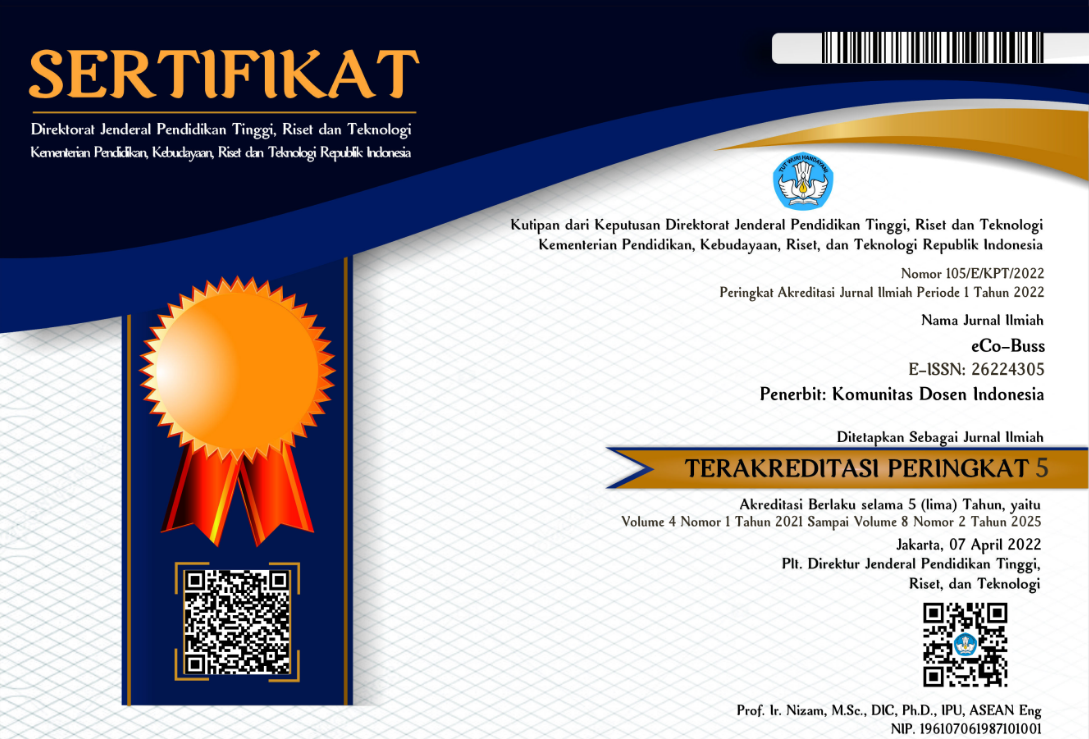ESG Risk and Firm’s Performance
DOI:
https://doi.org/10.32877/eb.v7i1.1483
Keywords:
ESG risk, operational performance, market performance, financial performance
Abstract
This study aims to explore the link between market, financial, and operational performance and environmental, social, and governance (ESG) risk. This quantitative study is based on data analysis from up to 100 observations collected between 2019 and 2023. Companies listed on the Indonesia Stock Exchange IDX LQ45 throughout the observation period serve as the study's samples. Purposive sampling was used to choose the sample, and it was done so based on particular research-relevant criteria. The performance of the company is examined in relation to ESG risks using the robust standard errors model. Stakeholder theory, which highlights the significance of corporate management taking into account the interests of all stakeholders, serves as the foundation for the theoretical model of this work. The dependent variables in the practical model are ROA, ROE, and Tobin's Q, whereas the independent variable is the ESG risk rating. The conclusions drawn from the empirical data demonstrate that market and financial performance are significantly harmed by ESG risk. Nonetheless, operational performance is not significantly impacted by ESG risk. This research adds to the limited body of knowledge about the risk associated with sustainability reporting and how it affects a company's capacity to perform financially and on the market. Organizations that effectively handle environmental, social, and governance (ESG) risks can reap enduring advantages such as enhanced standing and stable finances. A crucial first step toward ensuring sustainability and competitiveness in the future is the incorporation of ESG into company strategy.
Downloads
Downloads
Published
How to Cite
Issue
Section
License
Copyright (c) 2024 Desmy Riani

This work is licensed under a Creative Commons Attribution-ShareAlike 4.0 International License.






 DOI :
DOI :
 Abstract views: 288
/
Abstract views: 288
/  PDF downloads: 396
PDF downloads: 396

